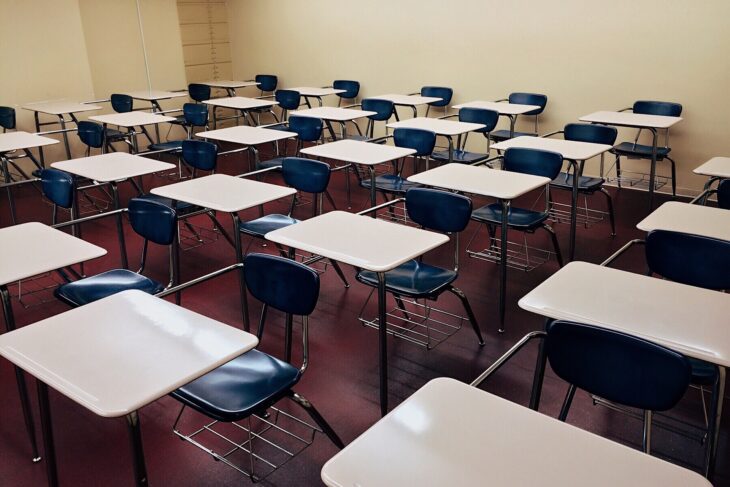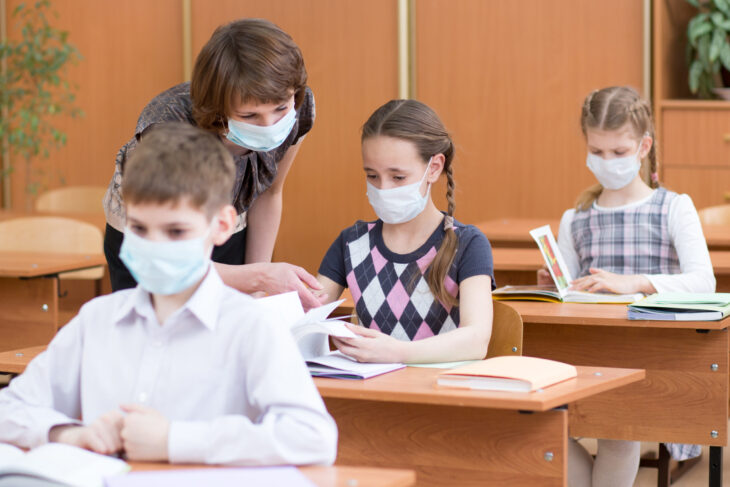The COVID19 pandemic has moved schools all over the U.S to online classrooms. Now, when the focus is slowly shifting to the reopening and salvaging the economy, the nation found itself in the heated debate over reopening schools again. Many teachers and educators are feeling anxious over this idea, and many of them think it leads to a potential disaster.
As the number of COVID cases increases by the day, it’s hard to know how the school reopening will affect the whole pandemic situation. Many teachers believe it’s not worth the risk. On the other hand, recent research suggests that online schooling systems already had a negative impact on education as a whole. The main argument is, that face-to-face lessons are much more valuable to students, and they can’t be replaced with online materials. Also, parents being able to go back to work while their children are safe at school is a big factor to consider as well.
Still, teachers all over the country are opposed to the idea of schools being reopened. A big portion of the education force is in the most vulnerable group, as more than a quarter of all teachers and educators are above the age of 50. Other than that, many questions about the different measures for combating the epidemic that they’ll have to enforce in their classrooms, remain unanswered. This is especially hard for teachers who teach very young children. Disciplining 8-year-olds is already hard as it is, but having them understand and respect the strict measures like social distancing could be impossible in some cases.

Source: euobserver
For many teachers, this is not a simple issue. Many of them feel the need and some kind of duty to be there for their students and their communities, but on the other hand, they’ll be risking their lives and the lives of their families. Education is an essential part of our society, but the health of our education workers should come first. Having the option to teach remotely is one of the blessings we have due to our advances in technology, and if it’s possible to do everything online, many teachers simply don’t see the need to risk their health because of their choice of profession. Online classrooms might not be as effective as the real-life lessons, but it’s a good compromise for the situation we’re in.
On the other hand, with the measures to mend the economic impact of the coronavirus, many parents are now required to go to work. They depend on their children being in classrooms so they can go and do their jobs. This sets a huge pressure on the education sector to reopen the schools. Parents have to be able to provide for their children. This is especially true for people with low incomes who depend on the schooling system in a major way. Still, the reopening plans are not detailed enough, and teachers fear that it’s still far too early and far too unsafe to go back to the classroom.
Even though some scientific research shows that children are less likely to transmit the virus to others, many educators are still skeptical when it comes to these scientific claims. They believe that too many things are unknown about the virus and that the risks are just too high. Many of them are worried about their students who have underlying health issues and their older co-workers and colleagues. Another important concern they have is access to limited resources of masks, hand sanitizers, and COVID tests. A lot of additional funding will be required so the risks of studying and teaching in schools can be minimized. If teachers end up not having the means to safely do their jobs, it could make the COVID epidemic much worse in the long run. The main goal is to „flatten the curve“ until the vaccination is made possible. Having a large number of people contracting the virus in schools would be a disaster not only for our health system but the economy we’re trying to save as well.
This is why, according to the research by Fishbowl, a largely popular professional networking app, teachers all over the country are largely opposed to classroom reopenings. Over 70% of teachers are opposed to this idea. It does differ by state, but generally speaking, most teachers think this is a bad idea.

Source: chesterfieldobserver
Considering that the U.S is still the country with the most active COVID cases in the world, the concern is completely justified. Even though the school reopenings have to happen eventually, doing it now could make the situation worse. The worst-case scenario is teachers and students all over the country contracting the virus, the schools become understaffed and forced to close, the virus spreads even more, and our economy now has to suffer for even longer than it would have if we chose to reopen the schools when it was way safer to do so.
On the other hand, the vaccine probably won’t be accessible anytime soon. People need to get back to work, businesses need to survive, and without a stable economy, the country can’t survive. Experts are predicting a global recession, and every government is pressured to try to find some sort of solution to save itself from financial ruin. Many compromises and sacrifices will have to be made to make this possible. It’s a very complex situation and it’s hard to predict all the possible outcomes.
All in all, the reluctancy of American teachers to go back to their classrooms is completely justified. There are too many risks and uncertainties, and the government needs to step up and make a detailed plan to help minimize the risks that the reopening brings to the table. Teachers who have underlying health issues or are older than 60 should be able to work remotely, and social distancing has to be enforced efficiently. Masks and other equipment must be accessible to all school districts, and everyone has to do their part in combating the disease. If the virus appears in a school, the school has to have detailed protocols to deal with it.
